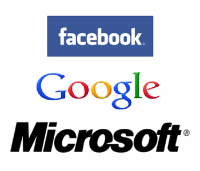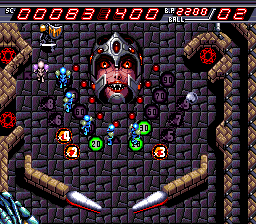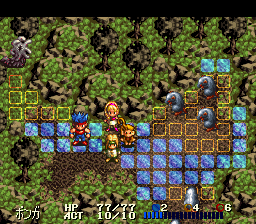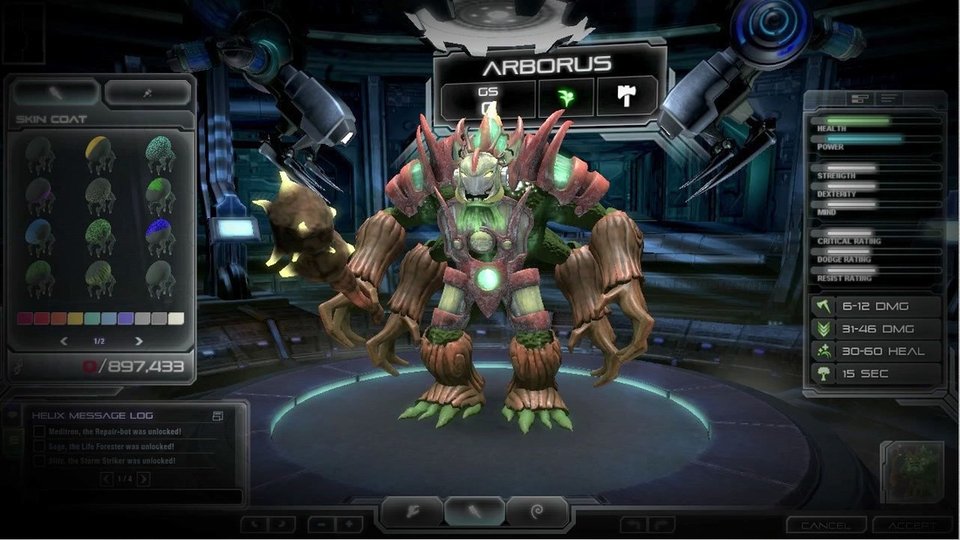Via Sue Gardner's Blog:
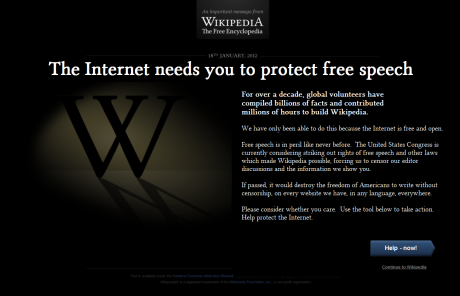 Below is the text of a talk I delivered Monday at the 2013 MIT-Knight Civic Media Conference in Boston. Republican Congressman Darrell Issa, Icelandic member of Parliament Birgitta Jónsdóttir and I spoke on the theme of “Insiders/Outsiders: what is the right approach to change.”
Below is the text of a talk I delivered Monday at the 2013 MIT-Knight Civic Media Conference in Boston. Republican Congressman Darrell Issa, Icelandic member of Parliament Birgitta Jónsdóttir and I spoke on the theme of “Insiders/Outsiders: what is the right approach to change.”
Unlike many of the people in this room, I’m not an academic or a public policy expert and so I won’t be bringing you statistics or analysis or theories today. I run a big website. I’m also a journalist. If we consider ourselves to be in a war for the free and open internet, I am here to tell you some stories from the trenches.
Wikipedia is pretty much the consummate insider-outsider: the #5 most-popular site in the entire world, read by a half a billion people every month, yet written by utterly ordinary people with no special power or authority at all. If they have credentials, they park them at the door.
Wikipedia is a tremendous success story. It launched in 2001 and took off very quickly: by 2006 it had surpassed all the other news and information sites in terms of popularity. Today it’s a behemoth. And people love to point to it as an example of everything great about the internet. There’s only one problem with that. Wikipedia is pretty much alone. It’s NOT the general rule: it’s the exception that proves the rule.
Wikipedia is operated by a non-profit. In Silicon Valley, people often find that astonishing – they ask me why Jimmy Wales “left so much money on the table,” and whether he regrets doing it. (Answer: no.) Sometimes people ask me why we don’t just put ads on the site, and whether we are against advertising, against for-profit companies, against capitalism.
We say no. Our view is that the internet should have balance, much like the offline world. A city has restaurants and shops and banks as well as schools and libraries and parks. Wikipedia is like a park. It’s a public space, accessible and used by everybody.
But where are the other parks?
- Wikipedia is the only donor-supported site in the top 50
- Wikipedia and Mozilla are the only two nonprofits in the top 25(*)
- The average person spends practically all their time online on the sites of for-profit companies, the vast majority of them American. (Caveat: mainland China.)
This worries me. The internet is evolving into a private-sector space that is primarily accountable to corporate shareholders rather than citizens. It’s constantly trying to sell you stuff. It does whatever it wants with your personal information. And as it begins to be regulated or to regulate itself, it often happens in a clumsy and harmful way, hurting the internet’s ability to function for the benefit of the public. That for example was the story of SOPA.
My first war story happened soon after I joined the Wikimedia Foundation. It’s about censorship in the United Kingdom.
The internet industry is, of course, generally hoping to remain unregulated. In the UK a coalition of ISPs have formed an association called the Internet Watch Foundation, which is essentially a group of retired police officers, paid by the ISPs to investigate complaints of child pornography online. In 2008, that group got a complaint about an image on Wikipedia of an album cover from 1976(**) – an album called “Virgin Killer”, by a German heavy metal band called the Scorpions. The album cover image is a young girl, nude, which has been treated with an effect that makes it look like she’s looking at you through a pane of glass that has been shattered by a bullet. It’s deliberately provocative – it’s heavy metal.
The Internet Watch Foundation decided this was child porn, and attempted to block it from the view of UK internet users. In doing that, they accidentally made it impossible for anybody to edit Wikipedia from inside the UK.
People went nuts. There was a lot of press coverage, both inside the UK and internationally. The Wikimedia Foundation spoke to the press, and individual Wikipedia editors in the UK spoke to the press and blogged and tweeted and so on. And after a few days the IWF reversed its decision.
Two interesting things:
- When they reversed their decision, they explicitly said that they still believed the image was child porn, but that the public outcry was too much for them. They backed down because they couldn’t win a PR war against fans of the number five website in the world. If we had been Joe’s Album Art History Wiki, it’s clear the decision would not have been reversed.
- Importantly and invisibly, while this story was playing out, and was being written about by journalists internationally, at the Wikimedia Foundation we noticed Amazon had quietly pulled the Virgin Killer album from its site. It still sold a version of the album that had a different cover, but it no longer sold the version with the image that was being challenged. Amazon didn’t call us to ask what was going on, or to offer us help. They didn’t even silently watch and wait. They pulled the album off their shelves — not just in the UK but worldwide.
Don’t get me wrong, I love Amazon. I spend a significant portion of my disposable income at Amazon every year, and I am grateful that it’s made my life easier and given me choices I didn’t have before it existed. Amazon is fantastic. But it’s also true that Amazon’s job is not to protect the public interest – it’s to advance the interests of Amazon.
Another story.
In 2011, there was a Wikipedia conference in Mumbai at which Jimmy Wales spoke as well as our Board member Bishakha Datta, and a few of our staff. To our considerable surprise, a popular Indian political party picketed outside our conference and demanded that the police arrest us. They were doing that because the map of India displayed on Wikipedia shows the country’s borders as per the United Nations – with the borders with China and Pakistan “disputed” – and not as per the map defined by the government of India. It is only legal, in India, to publish a map showing India’s borders as they are defined and understood by the government of India.
As you can imagine, the protest made us exceedingly anxious. We knew that although India is a democracy with a commitment to free speech, that commitment is variable and laws and community standards inside India are somewhat volatile. And so we retained a bunch of lawyers. We spent weeks researching the legal and PR issues. Where we could, we took a variety of small non-controversial steps to protect ourselves. And ultimately we got lucky, and the issue seemed to fizzle out.
What we did not do was change the map of India displayed on Wikipedia. Partly because we can’t – that’s a Wikipedia community decision – but also because we shouldn’t. It’s perfectly reasonable to publish a map of India with the UN borders.
What was interesting here, as we researched our position, was what everybody else does. It seems that inside India, every major player except Wikipedia displays the map of India with the borders as defined by the Indian government. If you’re in India, that’s what Google shows you. When the Economist magazine prints a map of India, I was told by our lawyer, the version of the magazine they sell inside India shows a map different from the version in the magazine they sell elsewhere.(***)
It’s also worth noting that the Wikimedia Foundation has a legal team and a PR team, and Wikipedia is a popular site, much-loved by its readers. Not everyone has those resources. Of those that do, most are private and for-profit. Again, some of those players are doing great things. But on the whole, over time, they will put profits before public service. That’s their job and their obligation.
Governments, in my experience, aren’t helping. Mostly they’re just befuddled, but even if they knew what to do, there’s no reason to believe they’d do it. Too often they’re corporate captives. We saw it with SOPA. Today they listen too much to the entertainment industry – the copyright owners. Tomorrow, maybe they’ll be listening too much to giant technology companies. Either way, the voices of ordinary people will only rarely be heard, and I have difficulty believing that more or better civic engagement will fix that anytime soon. I agree with Larry Lessig: structural problems – fundraising, gerrymandering – have made for a powerful incumbency with skewed incentives.
And so, as a soldier in the trenches, my message to this conference is caution and concern.
Aside from Wikipedia, there is no large, popular space being carved out for the public good. There are a billion tiny experiments, some of them great. But we should be honest: we are not gaining ground. Our schools, our libraries, our parks – they are very, very small and they may or may not sustain. We certainly have no information-sharing participatory Garden of Eden, the promise of the internet that we all originally believed in. Though we are not lost, we are losing.
I say this because it’s easy to come together for a conference like this and get excited about awesome experiments and interesting breakthroughs. It’s worth doing! We want to celebrate success! But if you’ve read
Tim Wu‘s
Master Switch, if you’re reading
Robert McChesney‘s
Digital Disconnect, you know that the insiders are winning. We are not.
The internet needs serious help if it is to remain free and open, a powerful contributor to the public good. That’s what I’m hoping you’ll discuss over the course of this conference. How to create an ecosystem of parks and libraries and schools online … that supports participation, dialogue, sharing.
Thank you.
(*Turns out I was wrong about this. Mozilla is #60 globally according to comScore Media Metrix, the industry standard for web audience measurement. Therefore, I should actually have said Wikipedia, at #5, is the *only* non-profit in the top 25.)
(**When I delivered the talk I said 2009 and 1979. I’d been misremembering: it was 2008 and 1976.)
(***Since delivering this talk, Tilman Bayer at the Wikimedia Foundation pointed me towards this BBC article, in which the Economist accuses the Indian government of hostile censorship after it forced the magazine to place a blank white sticker over a map of Kashmir in the 30,000 copies of the May 2011 Economist that were distributed in India.)

